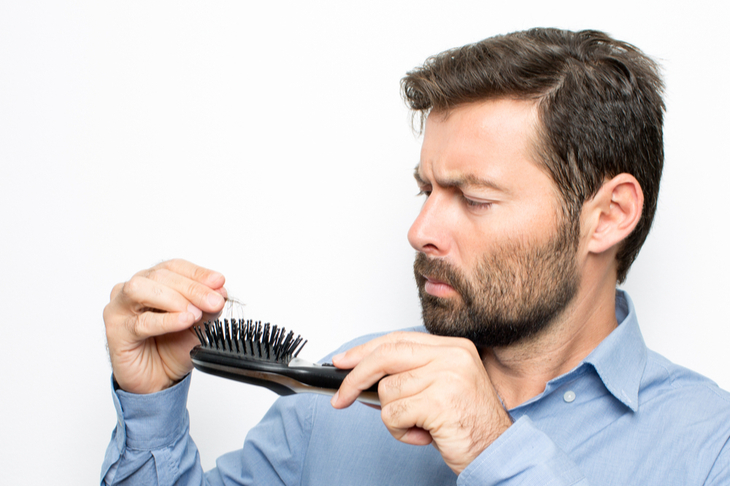
In the same way that the appearance of your skin reflects your physical health, so does the condition of your hair. By not getting enough sleep and failing to stay hydrated, you will very soon start seeing the effects on both your skin and hair.
Your skin and hair require a steady supply of essential vitamins and minerals in order to be healthy, which is why diet plays such an important role in the health of your hair.
If you’ve recently started noticing some significant changes in the thickness of your hair, you may want to take a look at your eating habits.
Diagnosing Deficiencies to Address Hair Loss
Nobody wants to deal with the reality of hair loss but before you panic, it’s essential that you look at the potential underlying causes first.
Before receiving hair loss treatments at a clinic such as https://mancavesydney.com.au, your hair will need to be examined and your medical history and lifestyle habits will be reviewed. This is standard practice to ensure that your hair loss isn’t being treated only for the same thing to occur later on.
If a vitamin deficiency is suspected, a series of blood tests will be run to officially diagnose the problem. Your hair loss specialist will either provide you with some suggestions on how to improve your health or suggest you see a GP or nutritionist who can assist you.
Mesotherapy is also a great treatment that uses injections filled with vitamins and other ingredients to address deficiencies. Mesotherapy also helps regulate growth factors in the scalp in order to stop the hair from thinning or falling out.
Feeding Your Hair
Even if you choose to undergo mesotherapy, you will still need to make sure that you change up your diet in order to increase your intake of essential vitamins and nutrients.
Here are a few of the foods you should add to your diet to combat hair loss:
- Protein. Protein helps make your hair strong and resilient. Add more lean proteins such as chicken, fish and eggs to your diet. For vegetarians, nuts and legumes are perfect.
- Iron. Your hair relies on your blood supply and when your blood doesn’t have enough iron, it can interrupt the nutrient supply to your hair follicles. When this supply is interrupted, it results in excess shedding. Increase your iron levels by eating more red meat, fish, lentils, spinach and other leafy greens such as broccoli and kale.
- Vitamin C. In order for iron to be absorbed, vitamin C is required, so add more oranges, strawberries, broccoli and blueberries to your diet.
- Zinc. A zinc deficiency can result in a dry scalp as well as hair loss. Beef and eggs are excellent sources of zinc.
- Omega-3. Omega-3 is essential for producing the oils that keep your hair soft and shiny. Fish such as sardines and salmon and vegetables such as pumpkin and avocado will give you the added omega-3 you need to feed your hair.
Along with adding some of these food items to your diet, you can also incorporate a few supplements that can boost your vitamin levels. Speak to your GP before you start taking a new supplement to make sure that it will benefit and not further hinder your hair growth.
Image credit: shutterstock.com

